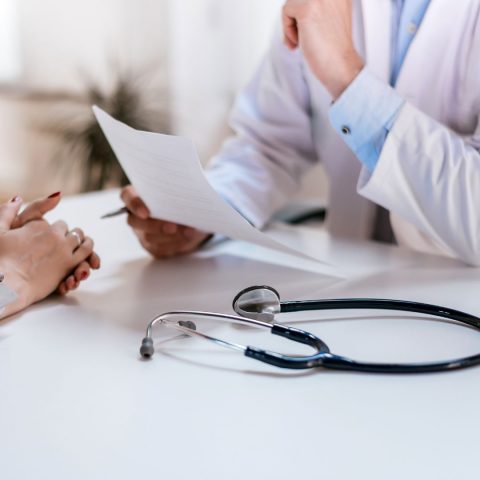Following a diagnosis of Parkinson’s disease, your head will naturally be spinning with questions, information, instructions and well-meant advice. It’s a lot to take in and it is normal to feel overwhelmed.
Allow yourself time to digest the news and focus your energy on these six points suggested by the Michael J. Fox Foundation for Parkinson’s Research. We think they are particularly helpful as they provide reassurance, structure and a sense of personal empowerment without trying to ‘’do it all’’ straightaway.
To use a sporting metaphor: this is a marathon not a sprint and it will take time to familiarise yourself with this new terrain. Go step by step, be kind to yourself and get comfortable in your own lane.
-
- See a specialist
Consult a neurologist specialising in movement disorders and Parkinson’s in particular as these doctors have more experience with the disease and are best placed to give a second opinion on your diagnosis or care, develop an individualized treatment plan and update you on research. You will be seeing this person regularly and the more candid you are with them about the symptoms you are experiencing the better they can support you. Perhaps ask your partner or another family member to attend your appointments with you? They may have observations that could be useful for the neurologist to hear and will be able to review the neurologist’s advice with you afterwards and remind you of any elements you may forget.
- Learn about Parkinson’s
Knowing the facts about Parkinson’s can help you understand the disease and make informed decisions about your current and future care options. But too much or inaccurate information can be overwhelming and even misleading. Ask your doctor for credible resources and try to resist the urge to ‘Google’. Remember each Parkinson’s patient has their own unique experience of this disease so comparisons are not always accurate or useful.
- Build a support network
There is no reason to be embarrassed or ashamed in anyway about having Parkinson’s disease. You need not feel alone. There are many people – friends, family and colleagues – as well as Parkinson’s organisations and other patients that will be happy to assist you. By being open about your diagnosis, your challenges and your needs, and by joining support groups and exercise classes you will build a network of people around you that can support you in different ways at different times.
- Eat a healthy, balanced diet
There is not a specific diet that has been proven to be particularly beneficial for people with Parkinson’s, however eating plenty of fruits, vegetables and whole, unprocessed foods has been shown to be good for body and brain. Get expert advice on how best to improve your diet in order to feel energized and healthy.
- Exercise regularly
Research has shown that exercise of any type can help reduce both movement and non-movement symptoms, such as depression and anxiety, of Parkinson’s disease. Whether it is walking, running, golf, boxing or dancing, find something you enjoy and do it regularly.
- Participate in research
When so much of your life seems uncertain and in the hands of others, it can feel empowering to be part of determining your future and that of the next generations by contributing to Parkinson’s research. Perhaps you might take part in a clinical trial, or assist a PhD student with their thesis studies? Perhaps you might raise funds to support a research project or serve on a patient advisory committee? Getting actively involved will also help you learn about your disease and expand your community of support.
Additional resources:
- A guide to the early years: a free downloadable guide in English provided by the Michael J. Fox Foundation. https://www.michaeljfox.org/form/guide-newly-diagnosed
- Parkinson’s Disease patient organisations in Belgium:
- Flanders: Vlaamse Parkinson Liga
- Wallonia & Brussels: Association Parkinson
- Brussels: ActionParkinson
This article draws upon guidance and suggestions provided by Parkinson’s organisations in Belgium, the United States, Canada, the United Kingdom, the Netherlands and France. It aims to provide an overarching view of available advice but can not possibly be comprehensive. We encourage you to visit the websites of your local or regional organisations as these may have specific information suited to your particular needs.

